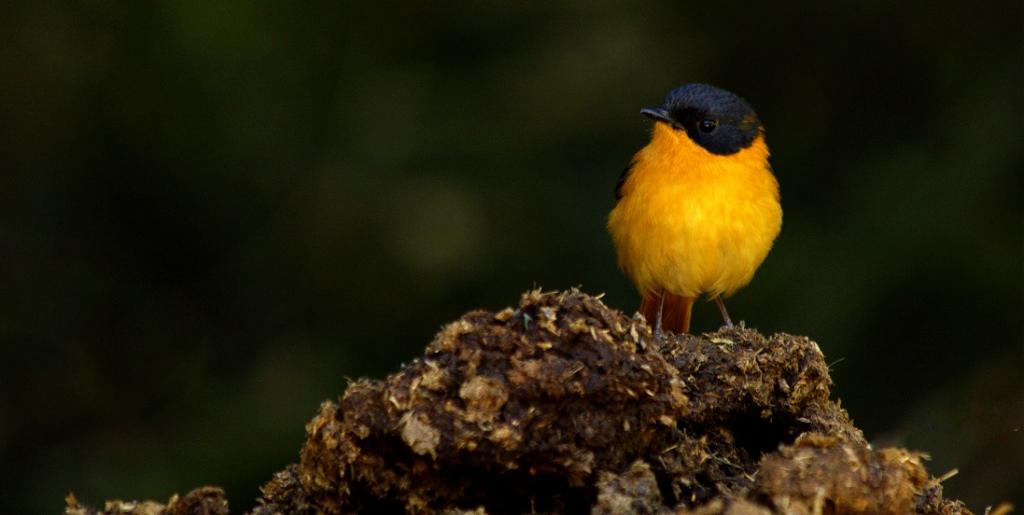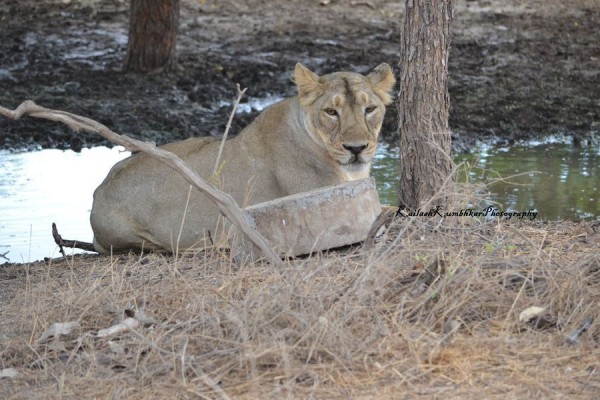Endemic Flycatchers of Western Ghats could lose 3rd of their range due to climate change: Study
The Black-and-orange Flycatcher (BOF) and the Nilgiri Flycatcher (NIF), two species endemic to the Western Ghats, could suffer a loss of 31 per cent and 46 per cent of their range respectively by 2050 due to climate change, according to a study published in Current Science.

Researchers from the Kerala Agricultural University, Thrissur, developed species distribution models for two both, BOF and NIF. They did this to understand the current potential suitability and possible responses of the species to future climate change using the MaxEnt algorithm.
The models predicted substantial loss of suitable areas under different climate change scenarios for both species, which will be more severe for NIF than BOF.Also, about 75 per cent of the currently suitable areas of both species lie outside the protected area network in the Western Ghats.
👉DTE
Ensuring proper flow key to revive Yamuna: Experts
Experts say while the focus of the government has been on construction of sewage treatment plants (STP), other issues like proper flow, discharge of industrial effluents and rejuvenation of the floodplain have failed to get the required attention.

In Delhi, the 22km urban stretch of the Yamuna from Wazirabad to Okhla is the most polluted. The National Green Tribunal-appointed Yamuna Monitoring Committee, which has now been dissolved, in its report last year had stated, “The analysis on water quality (between 2015 and 2020) both by CPCB and Delhi Pollution Control Committee (DPCC) clearly doesn’t point to a trend towards improvement in water quality.”
A report prepared by DPCC in October this year stated that all eight monitoring stations didn’t meet the parameters related to dissolved oxygen and biochemical oxygen demand, which revealed the poor quality of water.

Manoj Mishra of Yamuna Jiye Abhiyan said, “There was no improvement in the Yamuna over the years as the priorities of the government were wrong. The primary focus was on STPs. Linking sewge management with river rejuvenation will not give the desired results.”
“The Yamuna has lost a majority of its flow, but ensuring it is still not the priority. Haryana, Delhi and Uttar Pradesh have to come together to ensure the environmental flow. Anything less will only result in shifting of the goal posts, as has been the practice till date,” added Mishra.
👉TOI
Lion safaris in Gir should be minimal; reduce human-animal interaction: Gujarat HC
The Gujarat High Court has raised concerns over tourists thronging the Gir forest for lion safaris, and opined that the Asiatic lions should be allowed to live in peace and interactions between humans and big cats should be reduced in the interest of both.

The division bench of Justices J B Pardiwala and Niral R Mehta asked the government to frame a policy in this matter after studying measures adopted by other countries in this regard.
While hearing a PIL filed by an NGO opposing the proposed tourism zone in Girnar sanctuary of Gujarat, Justice Pardiwala observed that safari activities in Gir sanctuary should be minimal and the government should come out with a policy to reduce interactions between humans and animals.

Citing a recent report of a lion being lured with a live cow for a show, Justice Mehta said over a period, such shows will reduce the hunting skills of big cats, and they will then pose a big problem to humans. The government submitted that the lions used in safaris were essentially caged animals, who have already lost their hunting skills.
👉TLA

